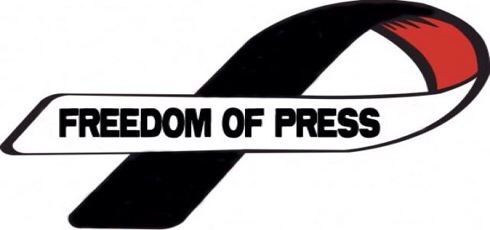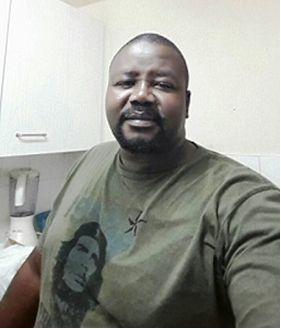Journalism and the Honor to Serve
Journalism, a lucrative profession, a privileged profession, a daring profession, a risky profession; many more apt descriptions could be offered in determining what kind of profession journalism actually is.
Some say it’s a calling, others say one has to be professionally trained before you undertake the practice of journalism. In my short 8 years of practicing journalism, I have got to learn differently as to the principal tenets of the practice of journalism albeit between two realities: whilst I know journalism to be the only profession that is practiced under the fundamental pillars of Freedom of Expression (and of the Press), I also know that the only mandate that is given to anybody whether “professionally trained” or otherwise, is the honor to serve the people, the ordinary and voiceless man. The honor to serve the public, protect public interest by either being the voice of the voiceless or taking to public education on matters that may prove difficult for their understanding or might not be privy to.
Of all the grounds taken up to justify the practice of journalism and the practice of journalism being what it is in my country Sierra Leone, is see the honor to serve as the only valid explanation as to why journalism must be what it is in the country. The issue of ‘the honor to serve is more akin to the notion of serving public interest which entail the representation of the voice of the voiceless and taking to educate the public in requisite terms.
In the absence of representing the people, using the media to educate them; there is actually no reason for journalism to exist in the first place. I would not agree more that journalism is a lucrative and privileged profession; but the truth though is that it not as lucrative as most would perceive it especially for the Sierra Leone case in material terms. Whilst there is the undoubted issue of better sweet that is also present in almost all professions, the lucrativeness of the journalism profession surely rests with the powers that are given us by the people to represent them.
The joy sometimes comes from breaking a big news story that exposes the caprice of the privileged few against the vulnerable poor. The satisfaction drawn from putting up a successful fight for the ordinary as per the principal mandate to being the voice of the voiceless is crucial to the powers that motivate a journalistic mind. More than any other factor, the satisfaction drawn from such success goes a long way to establish the lucrativeness of the job that is sought after by any true journalist whether by way of default of being in the calling or undertaking the practice after professional orientation and study.
That brings in the reason why journalism is being referred to as “The Fourth Estate”. The Fourth Estate as the name implies tells of being the 4th arm of governance; governance of the country. The governance function the fourth estate plays is that of censorship of all three of the other conventional arms of government-censorship in the interest of the people. In Sierra Leone in particular, the three arms of the so-called democratic government that are supposed to put checks and balances on each others activities seem to be tied in a grand royal marriage that emits loyalty to each other to the point of absolute complicity to the plight of the people.
This tells the impeccable truth that the people are left with the only option of relying on us the Fourth Estate and if for any reason we are seen dancing alongside the whims and caprices of the already compromised positions of the Executive, Legislative and Judicial arms of government; then we do not only fall foul of our mandate, but also that we would have left the ordinary man with the only option to take his own fight in his hand which undoubtedly is a recipe for chaos and disorder.
This as it is, also defeats the notion of governance system that is principally meant to bring order to chaos through the proper functioning of state and national institutions. Abandoning its duty to ensure that all government and public functionaries perform in the interest of the people; the Fourth Estate in my candid opinion bears an even greater complicity in advancing the ever growing self and egotistic good over national and public good.
It is a good thing that no journalist forgets that this should be our guiding principle; at times people will quote the law but the law exists for the people and if that law is being used to transgress on the very people who it is meant to protect, then the Fourth Estate in it’s scared role as the foremost civil society and civil rights institution must gang up against such law in its drive to represent public good. An instance could be drawn from the 1965 public order that impinge on the right of access to information and the freedom of Expression and of the Press. What about how this has come to affect progress in the fight against corruption in the country? Looking at it from this angle, it is clear to see that with the 1965 Public Order Act; the media charged with the function to look into such matters of corruption is of very little help to the ACC itself. Public information in government Ministries, Departments and Agencies are a big secret hidden thousands of miles away from the reach of journalists, how could the media man have the power to put a check on government or public expenditure which should not in anyway be a secret.
The issue now lurks around two solutions – there should either be a media-government dialogue that could bring the government to be sincere enough to acknowledge the role of the media in national governance and give it the free will to carry on such role or the Fourth Estate takes to playing its role with a unanimous force regardless of what law does or does not exist. Until such is reached, the people who the all of us, the Fourth Estate and government are mandated to serve will continue to take the toll governmental excesses and legal bondage.
Stay with Sierra Express Media, for your trusted place in news!
© 2009, https:. All rights reserved.






